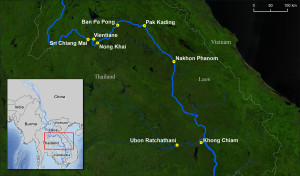
Kristina Brown
I have always been interested in the connections between rivers and the ocean, especially in the Arctic where I carried out my PhD research. As a Postdoctoral Scholar at the WHOI Coastal Ocean Institute, my research focuses on tracing carbon and freshwater inputs to the Arctic Ocean using the geochemical “fingerprints” of their different sources. I started my fellowship at WHOI in November 2014, so the Amazon River expedition (December 2014) was my first introduction to the Global Rivers Observatory (GRO) research group. I couldn’t have imagined a better platform to meet and get to know the GRO researchers, but I was also delighted to be joined by such an enthusiastic and interested group of WHOI and WHRC supporters. The unique combination of perspectives, set against the breathtaking backdrop of the world’s largest river, created many opportunities for interesting and fruitful discussions. The upcoming floating workshop down the Mekong River promises to be another truly memorable experience. |
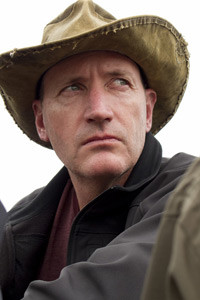
Mike Coe
I’ve worked on many rivers throughout the world as an earth system scientist specializing in human impacts on river systems, but for the last 15 years I have been focused on the Amazon Basin. I am trying to provide a clearer understanding of how deforestation in the rainforest and savanna biomes of South America is altering the regional climate and rivers. I have been concentrating on the undesirable changes that may occur because of these impacts, and possible strategies for avoiding or mitigating these negative effects. I work at a variety of scales, from the farm field to the entire 6.7 million km2 watershed. I’ve visited the Mekong River on one other occasion and am fascinated to see the changes that have been occurring there. |
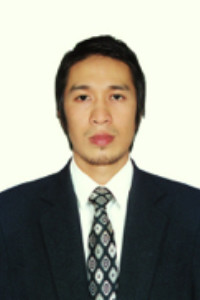
Nguyen Hong Duc
Mr. Duc is a lecturer and researcher at Can Tho University (CTU), Vietnam since 2008. Currently, he is participating in many national and international projects relating to water resources management as a project coordinator or an expert. In 2005 he graduated from CTU in the field of Hydrological Engineering and did a Masters of Sustainable Development at the University of Adelaide, Australia from 2012 to 2014. His main concern is the current situation of using and exploiting both river and ground water resources in Vietnam, especially in the Mekong River Delta. His research interests are water resources management and planning in the Vietnamese Mekong River Delta, especially in dry season, dealing with serious problems of river water resources (water pollution, dam and reservoir construction in the Mekong Basin) and the effects of climate changes (sea level rise, floods, droughts) on life as we as agriculture and aquaculture production. |
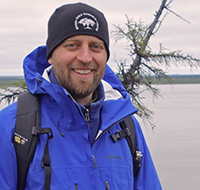
Greg Fiske
I am a Senior Geospatial Analyst and the chief cartographer at Woods Hole Research Center. I have been working with global-scale river related geospatial data since 1999. Bridging the gap between art and science, I believe that maps are the ultimate tool for communication. My interests include the use of maps and geospatial technology to facilitate and communicate earth systems science. My day-to-day activities include managing the many technical aspects of the Center’s GIS activities, cartography, database administration, developing computer code, and complex spatial modeling and analysis. At last count, I’ve created over a thousand maps of rivers, watersheds, and related topics. Many of these maps have found their way into scientific journal articles, books, websites, art exhibits, map contests, conference presentations, and the media. |
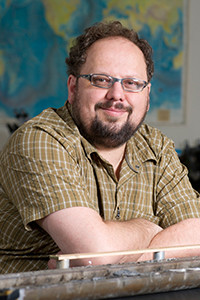
Liviu Giosan
I am a marine geologist who loves rivers… so I study river deltas across the world. Their unique stories of geological upheavals and human civilizations come from the vastness of continents and are preserved in the deep blue sea. Mythical rivers like Danube, Indus, Ebro… and now it’s time for Mae Nam Khong, the “Mother of Water”, the “Nine Dragon River”. In the company of friends and a glass of strong, good science… |

N. Stuart Harris MD MFA FRCP Edin.
Stuart is the Chief of the Division of Wilderness Medicine at Massachusetts General Hospital and professor of Surgery at Harvard Medical School. His team has been working with Dr. Holmes for the past several years to provide medical support and risk mitigation for the scientists and students of WHRC’s Polaris Project. His team studies how changes in the environment influence human health, most recently by investigating Vitamin D levels and mercury poisoning in the citizens of Cherskiy, Siberia. |
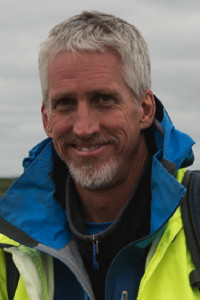
R. Max Holmes
I’ve loved rivers for my whole life, first as a small kid flipping over rocks in Northern Michigan streams looking for bugs, then as an angler, and finally as a scientist. My love of “mucking about in streams” has never waned, and my scientific curiosity about what we can learn about our changing planet by studying river chemistry and discharge continues to grow. Much of my research takes place in the Arctic, but an increasing amount is done on other large rivers around the world. I’m thrilled that the Global Rivers Observatory’s long-simmering idea of a series of “floating workshops” is now a reality, and that we’re following up our successful December 2014 expedition to the Amazon River with this new expedition to the Mekong. |
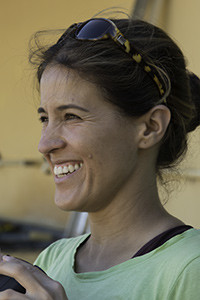
Marcia Macedo
My grandmother grew up in a tiny town near the mouth of the Amazon River. As a child, I loved hearing her stories about the region’s rivers, wildlife and people. By the time I took my first riverboat trip at age twelve, I was hooked – I knew I wanted to study the Amazon’s vast river network so I could help conserve it. As a WHRC scientist, I spend my days puzzling out how to use land efficiently so we can conserve tropical watersheds, feed people, and avoid climate collapse. My work combines satellite data, field measurements, and modeling to understand how agriculture and economic development are changing tropical streams and global climate. I’ve participated in dozens of scientific expeditions and workshops in the Amazon, but this will be my first trip on the Mekong River. I am thrilled to be a part of the Global River Observatory’s second floating workshop and to learn more about the challenges facing the Mekong Basin. |
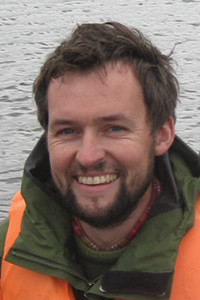
Paul Mann
I have been fascinated by rivers and what they can tell us about the surrounding landscape since my early school days, collecting waters along a small urban river as part of a year one geography report. I am now lucky enough to study some of the world’s largest rivers, including the Congo and many across the Arctic as part of the Global Rivers Observatory. I work as a research fellow at Northumbria University in the UK, and have particular interests in the response of aquatic systems to future change. I use geochemical and microbial approaches to examine how environmental changes are impacting ecosystem structure and function. I’m really thrilled to be part of this floating workshop and excited to see how our trip could lead to long-term collaborations on the Mekong, in a similar manner to those we have established elsewhere. |
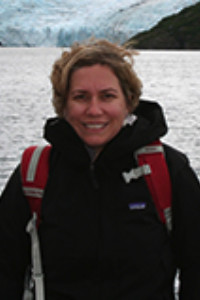
Anna Michel
I am an Assistant Scientist at WHOI in the Applied Ocean Physics and Engineering Department. My research lies at the interface of engineering and chemistry. I focus on developing and advancing new laser-based chemical sensors for in situ gas analysis both in water and in air. My lab primarily targets methane and carbon dioxide. To date, I’ve deployed these instruments at an Arctic lake; in Beijing, China during the 2008 Olympics; and in the deep sea at a brine pool and submarine volcano. I am really excited to see how these instruments can be applied to river systems. In addition to my research, I am involved in outreach efforts to engage students, especially middle school girls, in science and engineering. |
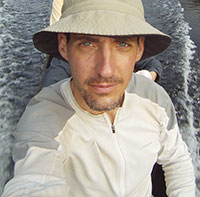
Chris Linder
I am a professional science and conservation photographer. My goals as a photographer are to educate the public about science, inspire the next generation of scientists, and communicate the need to preserve wild places. In the last ten years, I have documented over 40 scientific expeditions, including Global Rivers fieldwork in the Congo, Amazon, and Fraser River basins. My images have appeared in museum exhibits, books, calendars, documentary films, and magazines worldwide. I am the author of Science on Ice: Four Polar Expeditions (University of Chicago Press). |
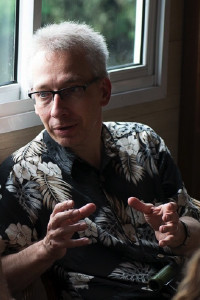
Bernhard Peucker-Ehrenbrink
Growing up, we used to spend some of our summer vacations on tributaries of the Danube, folding boats using newspapers and damming the flow with pebbles and boulders. It took me some time to appreciate how important rivers are to understanding the chemistry of seawater. Now, river research is at the core of my research program at WHOI. The Mekong is a new endeavor for us, and our goal is to set up a collaborative observatory with our Vietnamese colleagues to finally produce frequent high-quality environmental data for this fascinating and important aquatic ecosystem that is undergoing rapid change. Organizing river expeditions like this one is the best way I can imagine to learn about rivers, coordinate river research, and spend time with friends surrounded by beautiful landscapes, fauna and flora. Enjoying good food, drinks and discussions adds to the fun. |
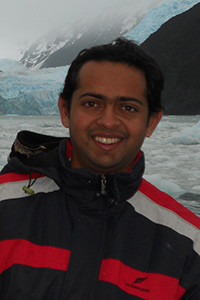
Indra Sen
I am an assistant professor in the Department of Earth Sciences at Indian Institute of Technology Kanpur, India. By training, I am a geochemist having graduated (Ph.D.) from Florida International University (USA) and did my postdoc in WHOI’s Marine Chemistry and Geochemistry Department. My research interests include the application of isotope and trace element geochemistry in order to understand Earth’s surficial processes, and understanding the linkages between rivers and cryosphere is one of them. I am presently trying to develop a hydrogeochemical model to evaluate the proportion of glacial melt-water in the Ganges River. |
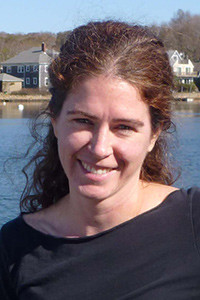
Suzanne Tank
I have spent my whole life in and around water: as a child growing up on the shores of the Great Lakes, as a teenager and young adult canoeing and kayaking through the Canadian wilderness, and today – working as an ecologist and biogeochemist who thinks primarily about aquatic ecosystems and how they function. While I also work on lakes and small streams, it is large rivers that truly capture my imagination: they are ‘majestic’ in the best sense of the word, critical for society, and have much to tell us about how the world around us functions. Currently, I work as an Assistant Professor at the University of Alberta. When I’m not at my desk or in the lab, I do most of my work in the Canadian Northwest Territories, and on the Canadian Pacific Coast. While I spend a lot of my research effort on the Mackenzie River in northern Canada, I’ve also thought about other large, north flowing rivers, as part of my involvement in the Arctic Great Rivers Observatory. |
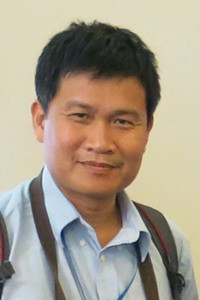
Triet Tran
I am a lecturer with the Vietnam National University in Ho Chi Minh City and a researcher with the International Crane Foundation, Wisconsin, USA. I am passionate about wetlands of the Mekong River basin. I had dreamed of organizing “Semester on the Mekong”, inspired by the famous “Semester at Sea” program, sort of a field course that would take students along the Mekong River to learn about its environment and people. But I soon learnt that it is technically impossible to travel on a boat for the entire length of the lower stretch of the Mekong River unless our boat could survive plunging down the Khone Fall at the border of Laos and Cambodia. I could, however, still do that kind of training, but mostly land-bound and one Mekong country at a time. In the past 12 years, under the framework of the Mekong University Network, a consortium of 22 universities from seven countries in Southeast Asia, we have organized 12 wetland courses that took place in all five lower Mekong countries. I am happy to share with you stories about wetlands of the Mekong. |
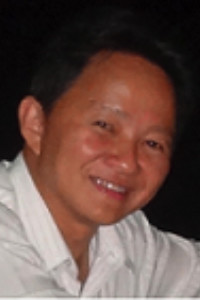
Van Tri Pham Dang
Van Pham Dang Tri (Assoc. Prof., Ph.D) is currently the Head of the Department of Water Resources, College of Environment and Natural Resources, Can Tho University, Vietnam. With a wide range of scientific background, he focuses on integrated research with great attention to waterscape management and river modeling, and tries to understand possible impacts of climate change on behaviours of the different river networks and changes of agriculture and aquaculture in the Vietnamese Mekong Delta. He is presently participating in different national and international projects as either a project manager or a technical advisor. |
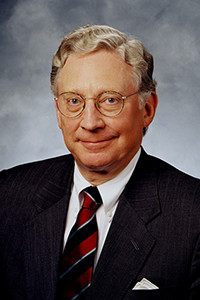
Ken Woodcock
A resident of Washington DC, Mr. Woodcock earned his BS in Mechanical Engineering at Lehigh University and Masters in Business Administration from the University of Pittsburgh. Following graduation he was a Development Engineer at E. I Dupont de Nemours and Co. developing Corian, a synthetic marble. He then served as a Commissioned Officer in the US Public Health Service (1967-69) on the Cost of Clean Air—-the first nationwide study of the economics of forthcoming US clean air legislation. When the Environmental Protection Agency was formed, he provided technical analysis to the EPA General Counsel and head of enforcement. During the 1974 Arab Oil Embargo, Mr. Woodcock served as the Environmental Advisor to four Energy Czars at the Federal Energy Administration.
After government service, he was one of the founders in 1981of the AES Corporation, a global electric power company that operated in 30 countries at one time and employed 30,000 people. AES operates a wide range of power supply options and electric distribution companies. He began developing the $2.2 billion Mong Duong 2 power plant in northern Vietnam in 1995 that now provides electricity to the Vietnamese grid. Over the last 20 years, he has traveled to Vietnam well over a dozen times and was engaged earlier with the Vietnamese embassy in Washington
Mr. Woodcock retired from AES in 2004 and is very active in the non-profit sector in Washington DC, Rhode Island and Pennsylvania. He focuses on land and historic preservation, education, music and the arts. |

